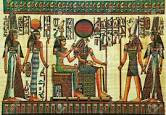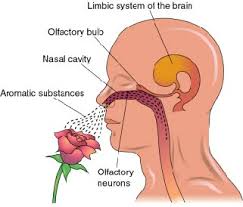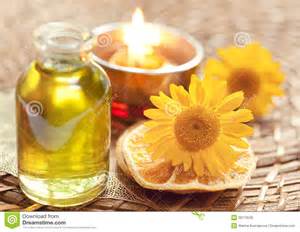







When we travel away from home the attraction is invariably the sun and the sea. And yet the sea may cause all kinds of problems, because these days the world's seas are dumping- grounfs for all manner of toxic waste, human and animal sewage, metals, contaminated hospital waste and the radiation that results from underground nuclear explosions.
In my local seaside town children have been paralysed by a virus caught, it is thought by some, as a result of swimming in the sea, and the Mediterranean conjunctivitis, rashes and strange inflammations are commonplace. If you develop any unusual condition as a result of swimming, treat it is a viral infection - better be safe than sorry!
Reference : The Fragrant Pharmacy: Valerie Anne Worwood







Aromatic substances also played an important role in the medicinal practices of the Hebrew, Arabic and Indian civilizations. But for the Ancient Egyptians aromatherapy was a way of life. At about the time that the Chinese were developing Acupuncture, the Egyptians were using balsamic substances in both religious ritual and medicine. Records dating back to 4500BC tell of perfumed oils, scented barks and resins, of spices aromatic vinegars, wines and beers all used in medicine, ritual, astrology and embalming. When Tutankhamun`s tomb was opened in 1922, many pots were found containing substances such as myrrh and frankincense (both derived from tree resins): these were used as much for medicine as for perfume, the two being interchangable at the time.
Translations of hieroglyphics inscribed on papryi and steles found in the temple of Edfu indicate that aromatic substances were blended to specific formulations by the high priests and alchemists to make perfumes and medicinal potions. in the temples, aromatic substances like crushed Cedarwood bark, caraway seeds and angelica roots steeped in wine or oil, or burned to perfume the air. The priests knew of the power of certain smells to raise the spirits of their congregation, or to promote a state of tranquility. A favorite perfume was the famous Kyphi, a mixture of sixteen different essences-including myrrh and juniper-and this was inhaled to heighten the senses and spiritual awareness of the priests. The incenses used in present-day religious rituals serves much the same purpose.
In the 1870s, The Ebers Papyrus -seventy odd feet of medical scroll-was discovered. It dated back to C.1500BC and listed over 800, mainly herbal, prescriptions and remedies. A scroll discovered slightly earlier, and called the Edwin Smith, dealt with medicine as well. From these scrolls, we learn that the Egyptians treated hay fever with a mixture of antimony, aloes, myrrh and honey. (myrrh is still used for throat problems and coughs by the way.)
And they knew the basics of contraception: a blend of acacia, Coloquinte (the pulp bitter-apple), dates and honey would be inserted in the vagina where it would ferment to form lactic acid -which is now known to act as a spermicide.
Aromatherapuetic principles were employed also in the famous Egyptian art of the embalmer. He knew of the natural antiseptic and antibiotic properties of plants and how these could be utilized in the process of preserving human bodies. Traces of resins like Galbanum, and spices such as clove, cinnamon and nutmeg, have been isolated from the bandages of mummies. Such preservatives were obviously remarkably effective. Fragments of intestine examined under the microscope have been found to be completely intact after thousands of years. The remarkably preserved bodies extant in mummies, revealed by modern x-ray techniques, are a testament to the art of the embalmers, those early aromatherapists.
Another aspect of the Egyptians use of aromatherapeutic principles was in cookery. They showed an amazing knowledge of the culinary value of aromatic substances. They would add spices such as caraway, coriander and aniseed to their breads of millet and barley to make them easier to digest. (Many spices and their oils are digestive in action, in fact, but recent research on caraway , for instance, has shown that one of its constituents
Carvone, is extremely powerful, stimulating and releasing the gastric juices.)
Onions and garlic were eaten often, onion bulbs invariably being found in or beside the tomb of a mummy as accompaniment into the next world. (Onion, of course, possesses potent antibacterial properties, and eating it daily can keep colds and flu at bay.) Garlic´s bactericidal properties were as well known then as now: from an inscription on the Pyramid of Cheops we learn that every morning the slaves building the pyramid would be given a clove of garlic each to provide them with strength and good health. Today, Garlic is well known as a powerful natural detoxicant, protecting against bacterial and viral infections.
Reference:Aromatherapy: The Encyclopedia of Plants and Oils and How They Help You: Daniele Ryman









The word aromatherapy refers to the clinical use of essential oils combined with physical therapy. Aromapsychology specifically refers to essential oils that positively effect the mind, awareness, conscious states, functions of enhancement learning and mood alterations.With all of these positive attributes the science of aroma psychology now attracts a huge amount of funding, for extensive research, and the production of chemical fragrances with similar properties.
These oils are declared to have similar properties to essential oils.These chemotypes,made in laboratories, are easy and relatively cheap to produce, manufacturers
do not have to be dependent on the ecosystem, and it‘s moods of weather affecting the seasonal crops required for the production of pure essential oils.The therapeutic results of chemo type oils are quite different to those of pure essential oils.In clinical practice there are defined differences, in the results achieved after therapeutic use.The reasons for the success of therapeutic results in the treatment of mental health, with pure essential oils is the following:
Aroma molecules connect with receptor cells in the cilia extending from the olfaction bulb-which is a extension of and part of the brain. Olfaction is the most direct interface between the brain and the physiological body (the mind body connection). Through the sense of smell, aroma molecules set off a cascade of reactions, involving proteins, enzymes and cell depolarization. These all lead to electrical impulses being triggered and sent to the limbic system, which is the oldest part of our brain and the processor of emotions.
The main symptoms of depressive states include, feelings of sadness, hoplessness and pessimism, added to this there may be a lack of interest in life‘s so called pleasures, (loss of sexual libido) the slowing down of physical and mental activity, periods of tiredness, loss of concentration, indecision and impaired memory functions.
Anyone who feels depressed for whatever reason, should seek medical advice, the causes of depressive states may be due to an underlying physical disorder, possibly involving the thyroid gland and a form of hormonal imbalance.e.g., (post-natal depression) There may be inherited genetic disorders that cause depression.
Drugs clearly have a role in the treatment of depressive states. To enhance the outcomes of drug therapy, it‘s a good idea to visit an aromatherapist, who can offer support, encouragement, and the benefits of therapeutic touch. Aromapsychology can be supportive to over come the barriers of depressive states. Friends and relatives should make an extra effort, to lend a listening ear, and offer the gift of an understanding approach.
RARL (scribblers 03/11/2008 References:The fragrant Mind:Valerie Wormwood.
- Home
- Vaginal infections and inflammation
- The Vinegar treatment for Thrush
- Threat to the Forests
- Treating Acid Environments
- Your Basic Travel Kit - Tummy Troubles
- Pamela L. Crowell on the Prevention and Therapy of Cancer by Dietary Monoterpenes
- Thrush (Candida) Case History
- The Work of Anne-Marie Giraud-Robert
- Applications For Your Basic Care Kit - 4
- Bites and Stings - General Action - Your Basic Travel Kit
- Thrush treatment for Men- Women
- Whooping Cough
- Fragrant Pharmacy
- Lymphoedema
- The journey
- Your Basic Travel Kit - Fevers
- Applications For Your Basic Care Kit - 3
- Your Basic Travel Kit - The Heat
- Aromatherapy-Cramps
- Problems In Pregnancy
- Aromatherapy-Articles-A-Z
- Verrucas and Warts
- Your Basic Travel Kit
- Rabid Bites and Scratches - Your Basic Travel Kit
- Fragrant way to Beauty - 2
- The Fragrant way to Beauty
- A-Z of Dance and Sports Injuries - 7
- A-Z of Dance and Sports Injuries - 6
- A-Z of Dance and Sports Injuries - 5
- A-Z of Sports and Dance Injuries - 4
- A-Z of Sports and Dance Injuries-3
- A-Z of Sports and Dance Injuries-2
- A-Z of Sports and Dance Injuries
- Aromatherapy - Locker Room Scents
- Aromatherapy- Stress & Sports - Jacuzzis
- Aromatherapy-stress & Sport - Saunas
- Aromatherapy - stress & Sport - Showers
- Stress and Sport - Aromatherapy
- Foot Care - 2 - Aromatherapy
- Foot Care - Aromatherapy
- MUSCLES-Aromatherapy
- Methods Of Treating Injury
- Assertive Oils For Sports, Dance and Work-Outs - 2
- Assertive Oils For Sports, Dance and Work-Outs
We have 59 guests and no members online

